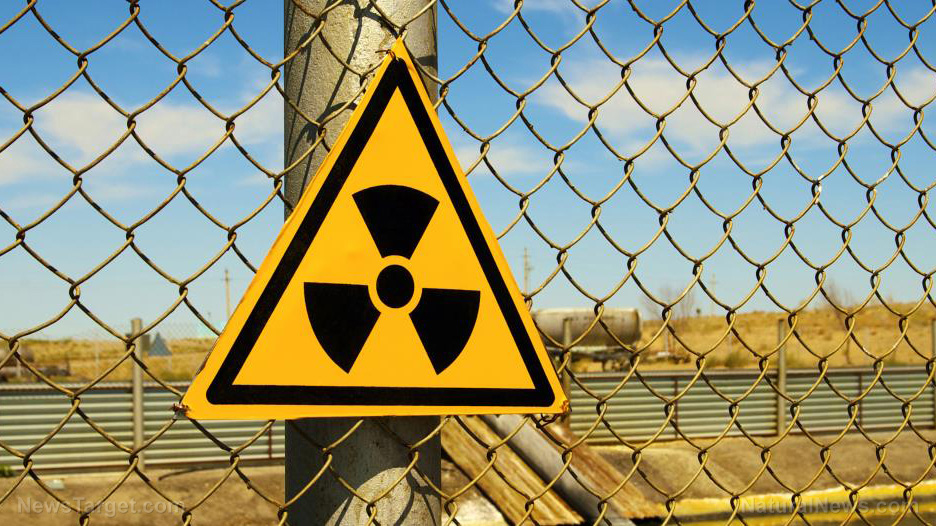 Parler
Parler Gab
Gab
"If these cocaine bales are a point source of pollution, it’s very plausible [sharks] can be affected by this chemical," said Fanara. "Cocaine is so soluble that any of those packages open just a little, the structural integrity is destroyed and the drug is in the water." (Related: UN report: Cocaine smuggling and production increase amid growing demand for illicit substances.)
During a six-day expedition in the Florida Keys, Fanara and a group of researchers observed peculiar behaviors in sharks, such as hammerheads swimming erratically toward divers and sandbar sharks seemingly fixated on imaginary objects. The researchers conducted experiments such as dropping dummy bales in the water and using bait infused with highly concentrated fish powder to simulate the effects of cocaine. According to British marine biologist Tom Hird, the response of the sharks to the simulated cocaine was similar to a cat's reaction to catnip. The choice of the Florida Keys for the study was strategic since the region serves as a hotspot for floating bales of cocaine due to ocean currents and its role as a transit point for drug trafficking.Sea-based drug trafficking poses danger to marine life and ecosystems
Fanara's study, along with other recent events, such as the upcoming "Shark Week" on the Discovery Channel, are highlighting the potential consequences of maritime drug trafficking on marine life and ecosystems. One documentary about to air called "Cocaine Sharks" investigates whether ocean predators are consuming pharmaceuticals, specifically cocaine, discarded into the water. While it may sound like sensational entertainment, the documentary delves deeper to address pollution and its impact on aquatic life."It's a catchy headline to shed light on a real problem, that everything we use, everything we manufacture, everything we put into our bodies, ends up in our wastewater streams and natural water bodies, and this aquatic life we depend on to survive are then exposed to that," said Fanara.
For decades, large bricks of cocaine from South and Central America have washed ashore on the beaches of Florida. These cocaine bales are often dumped at sea and then picked up by drug smugglers operating on boats. The proximity of Florida to South America makes it a significant staging point for drug trafficking into the United States. Plastic-wrapped bundles of cocaine are often lost at sea or jettisoned by traffickers trying to evade law enforcement. Last month alone, the Coast Guard reported recovering over $186 million worth of illegal narcotics from the Caribbean and southern Florida waters. Despite such seizures, the drug industry continues to operate at alarming levels. During filming in the Florida Keys, the research team encountered instances where cocaine bales washed ashore. However, the precise amount of cocaine sharks ingest remained undetermined from their preliminary experiments. The documentary aims to raise awareness about the threats pollutants pose to marine life and the fragile ocean ecosystem. "We're in the sixth mass extinction and the more chemicals we introduce, the more radical changes we introduce, the more precarious it gets," Fanara said."These animals are leaving one by one and the integrity of the tower is depleting, even if we might not feel it right now," she added. "At some point, the tower's going to fall."
More related stories:
USGS: At least 45% of TAP WATER across the U.S. is contaminated with FOREVER CHEMICALS.
Sharks are behaving strangely and plastic pollution could be to blame.
Sources include: 100PercentFedUp.com TheGuardian.com FoxNews.com Brighteon.comPutin is setting up private armies for protection against Wagner-style rebellion
By Cassie B. // Share
FBI finds 200 trafficking victims, 59 missing kids in two-week operation
By Ramon Tomey // Share
Governments continue to obscure COVID-19 vaccine data amid rising concerns over excess deaths
By patricklewis // Share
Tech giant Microsoft backs EXTINCTION with its support of carbon capture programs
By ramontomeydw // Share
Germany to resume arms exports to Israel despite repeated ceasefire violations
By isabelle // Share










